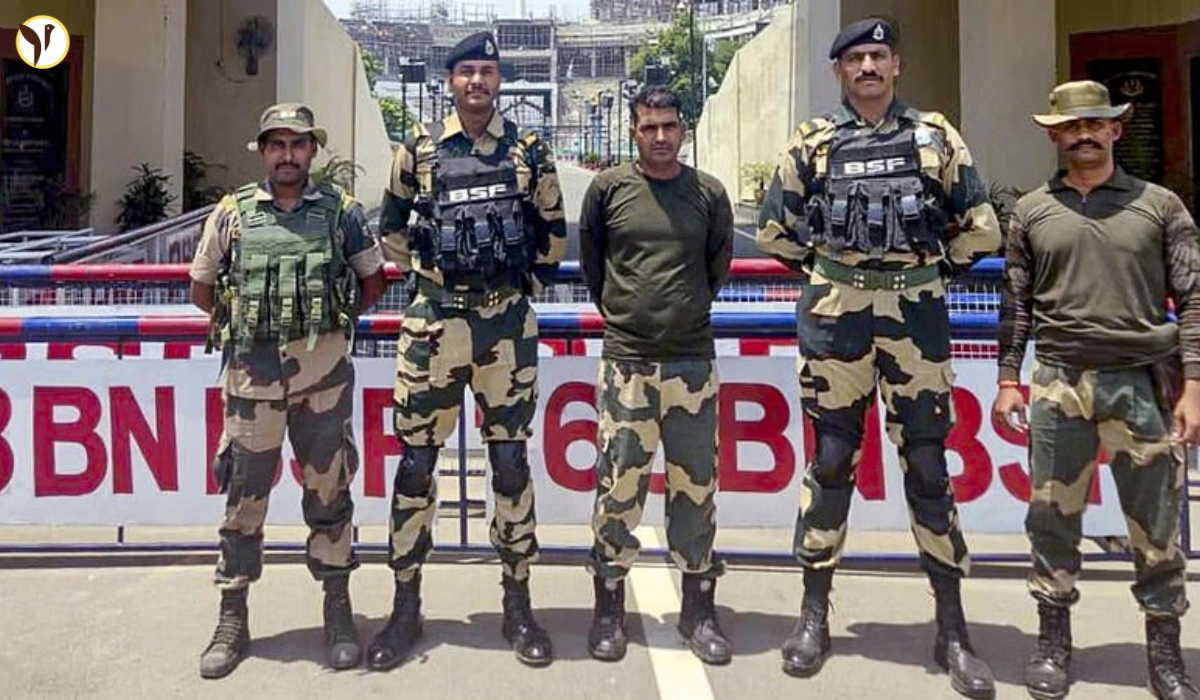Relief at Last: BSF Jawan Returns Home After Accidental Border Crossing
The family of Constable Purnam Kumar Shaw couldn't hold back their tears of joy this Wednesday as he finally returned to Indian soil. After an agonizing three-week wait, the 40-year-old BSF jawan was handed back by Pakistan Rangers following his accidental border crossing on April 23rd while on duty in Punjab's Ferozepur sector. For his loved ones back in Hooghly, West Bengal, these 21 days had felt like an eternity.
"We couldn't sleep. We couldn't eat. Every phone call made our hearts race," said his wife Rajani, describing their ordeal. The jawan's safe return isn't just a family's happy ending—it's also a reminder that even when tensions run high between India and Pakistan, diplomatic channels can still function effectively.
How a Routine Day Turned into an International Incident
It was supposed to be just another day at work for Constable Shaw of the BSF's 24th Battalion. He was helping local farmers near the border—something he'd done countless times before—when a simple mistake changed everything.
Shaw, dressed in full uniform and carrying his service rifle, reportedly sought shade to rest during his patrol. In a momentary lapse of awareness, he accidentally stepped across the International Border. Within minutes, he was in Pakistan Rangers' custody, triggering immediate diplomatic efforts for his return.
- The Handover: At around 10:30 AM on Wednesday, a visibly tired but relieved Shaw was handed back to Indian authorities at the Joint Check Post in Attari, Amritsar. BSF officials confirmed the handover followed established protocols between the two countries.
- What's Next: Shaw is now undergoing routine debriefing with Indian security officials—standard procedure in such cases. He'll likely be reunited with his family soon after medical checks and formalities are completed.
What made this situation particularly tense was its timing. Shaw crossed the border just a day after the April 22nd terror attack in Pahalgam, Jammu and Kashmir. Despite the already strained relations, flag meetings between Indian Army and Pakistan Rangers officials continued, ultimately securing his release.
Twenty-One Days of Uncertainty: A Family's Emotional Journey
"Is Papa coming home today?" Seven-year-old Arjun asked his mother every morning for three weeks. The innocent question broke Rajani's heart each time, as she tried to shield her son from the full gravity of the situation while managing her own fears.
The last three weeks have been a roller coaster for the Shaw family in Rishra. Rajani described how she clung to hope after receiving a brief call from her husband on Tuesday night—the first contact since his disappearance.
"His voice was weak, but he was alive. That's all I needed to hear," she recalled, wiping away tears.
His elderly father, Bholanath Sahu, had been particularly vocal about his concerns. "We're simple people. We don't understand politics. We just wanted our son back," he told reporters after hearing about the successful handover. The family had been making daily visits to the local BSF office, desperately seeking updates.
Beyond Headlines: The Human Side of Border Security
Border security personnel like Shaw face risks that most of us can barely imagine. They patrol remote areas in extreme weather, often with limited communication and far from their families. A momentary lapse of attention or a simple misjudgment can have serious consequences.
Yet behind every uniform is a person with loved ones waiting at home. Shaw's story brings this reality into sharp focus—reminding us that international incidents often have deeply personal dimensions.
Could better border marking have prevented this? Should patrol procedures be reviewed? These questions will likely be addressed in the coming weeks, but for now, the focus remains on Shaw's well-being and his reunion with family.
While relations between India and Pakistan continue to be complex, this incident demonstrates that communication channels remain functional even during difficult times. The commander-level flag meetings, phone calls between security forces, and diplomatic exchanges all played crucial roles in bringing Shaw home.
As Shaw prepares to return to his family in West Bengal, his experience stands as a testament to both the risks faced by those who guard our borders and the value of maintaining open lines of communication with neighboring countries—even when political relations are strained.
For the Shaw family, politics and diplomacy matter less than the simple fact that their loved one is coming home. And sometimes, that's the most important headline of all.









